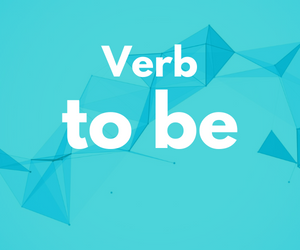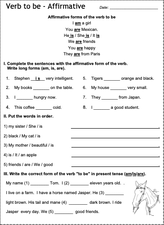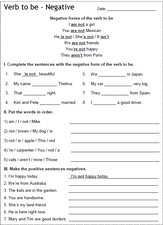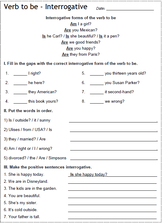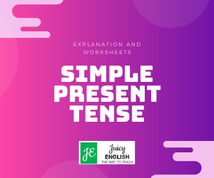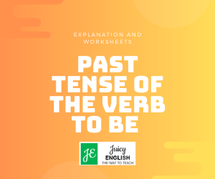Category: Verb tenses
The verb to be is the most important verb in the English language. It involves identity, expresses something about a person, thing, a state (it gives age, condition, date, position, price, size, time, weight) or refers to temporary and permanent states. “Be” is the only English verb that has three conjugations in the simple present (am, is & are).
In the simple present tense, to be is conjugated as follows:
In the simple present tense, to be is conjugated as follows:
Affirmative forms of the verb to be
|
Subject
|
To be
|
Contraction
|
|
I
|
am
|
I'm
|
|
You
|
are
|
You're
|
|
He / She / It
|
is
|
He's / She's / It's
|
|
We
|
are
|
We're
|
|
They
|
are
|
They're
|
|
You
|
are
|
You're
|
Negative forms of the verb to be
|
Subject
|
To be
|
Contraction 1
|
Contraction 2
|
|
I
|
am not
|
I'm not
|
-
|
|
You
|
are not
|
You're not
|
You aren't
|
|
He
|
is not
|
He's not
|
He isn't
|
|
She
|
is not
|
She's not
|
She isn't
|
|
It
|
is not
|
It's not
|
It isn't
|
|
We
|
are not
|
We're not
|
We aren't
|
|
They
|
are not
|
They're not
|
They aren't
|
|
You
|
are not
|
You're not
|
You aren't
|
Interrogative forms of the verb to be
|
To be
|
Subject
|
Complement
|
|
Am
|
I
|
happy?
|
|
Are
|
you
|
happy?
|
|
Is
|
he / she / it
|
happy?
|
|
Are
|
we
|
happy?
|
|
Are
|
they
|
happy?
|
|
Are
|
you
|
happy?
|
Verb to be Worksheets
What to read next
